‘She held her Yoruba heritage tight in one hand // In her defence, the colonizers had taken everything from her people. Why should they take her gods too?’
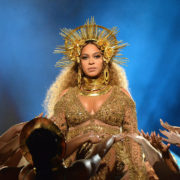
The Rise of Indigenous Yoruba culture in Western entertainment today.
Contribution by Demilade Phillips.
The 2017 Grammys marked a very prominent moment for me as a black Nigerian man of Yoruba heritage. All anybody could talk about afterwards was Beyoncé’s otherworldly performance. Cloaked in a goldish-yellow ensemble, anybody accustomed to ancient Yoruba history would have had no problem piecing together the reference behind her glittery costume, especially paired with the fact that she was heavily pregnant. “That’s goddess Oshun!” I said, not particularly happy or sad, but neutrally intrigued. As she performed to a mesmerized 26.5 million viewers, not only was she Queen B… she was a goddess, channeling the ethereal Oshun beautifully.
For many Yorubas familiar with their heritage, Oshun, the river goddess is one of the more popular deities who represents sensuality, love, water, fertility and life, sent to join in creating the world. Growing up in Lagos (the epicenter of Nigeria) however, my regard for the indigenous gods and goddesses of my tribe was educational and almost dutiful, especially since I was raised in a Pentecostal Christian home and taught that there is only one God in existence. Unfortunately, I am just a small part of many Nigerians who believe that our indigenous gods are simply mythological divine beings, much the way some Europeans view Zeus, Athena, and the rest of the divinities that make up what the world refers to today as “Greek Mythology.”
Sporting a bright yellow dress and being one with the water was another ode to the goddess Oshun that onlookers might have missed from Beyoncé. Luckily for me, I was living in Ile-Ife at the time and sought to know what the indigenous people thought of this “representation”. Unsurprisingly, the responses were mixed.
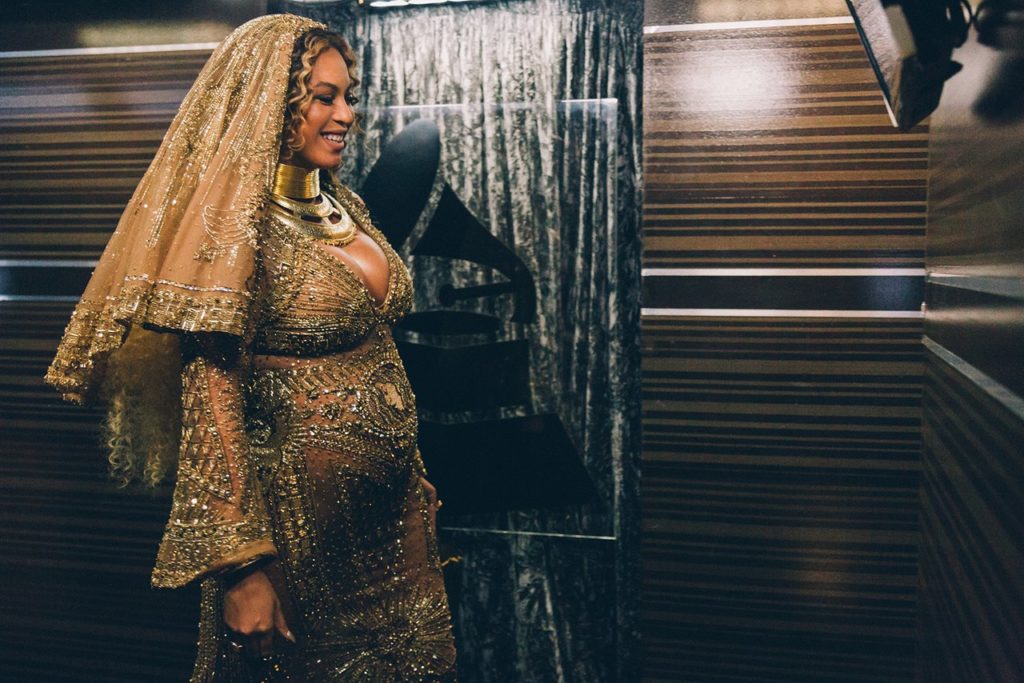
Via: Beyonce.com
“She is showing off what a lot of Yoruba people have been forced to forget.” said a vendor at Sabo market, a popular market in Ile-Ife when I showed her the clips and explained the meaning behind them. “I still believe in the Orishas (deities)” she continued. “Oshun is still very much alive and is the reason my business is doing so well.” she ended with a brag, speaking her native tongue more proudly at that moment.
In contrast, another seller wasn’t too pleased on the representation. “Oshun is a goddess. No mortal should assume her role.” she retorted. After I had tried to explain things further, she still was not having it. She held her Yoruba heritage tight in one hand, almost gatekeeping it. In her defence, the colonizers had taken everything from her people. Why should they take her gods too?
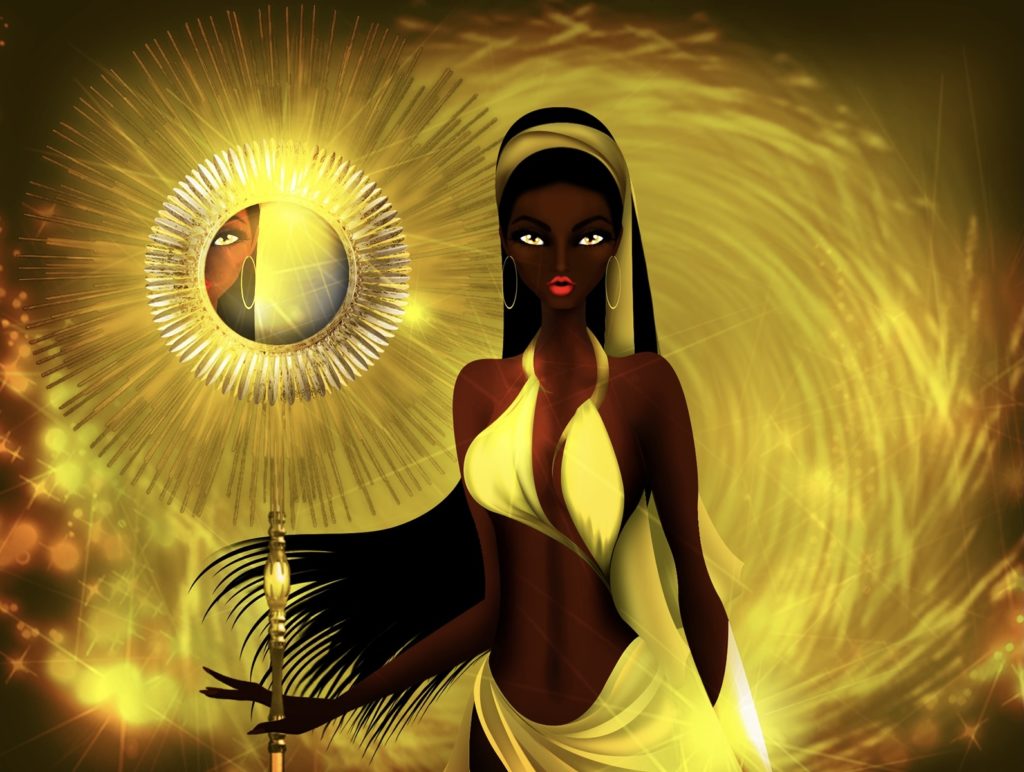
This remains a large sentiment for many Nigerians.
Timbuktu, a UK clothing brand came under fire for trademarking the word “Yoruba”. The increasing efforts of people and brands to use the parts of African culture that suits them to their own benefit is still a rising topic and the difference between cultural appreciation and appropriation is separated by a very thin line today in media.
To a very large extent, and for many young people however, these Yoruba deities used for media purposes are welcome, showcasing the beauty in what a lot of young Nigerians have never even been taught about.
Spike Lee’s “She’s Gotta Have It” has main character Nola Darling attend a consultation with a Lucumí, which she (Santana Beritez) describes as “Yoruba orisha worship”. After casually naming Orishas like Elegua and Yemaya, two very powerful deities, she performs a ritual ceremony to cleanse Nola. Beritez, a real life Lucumí practitioner has been outspoken about her love and respect for these deities.
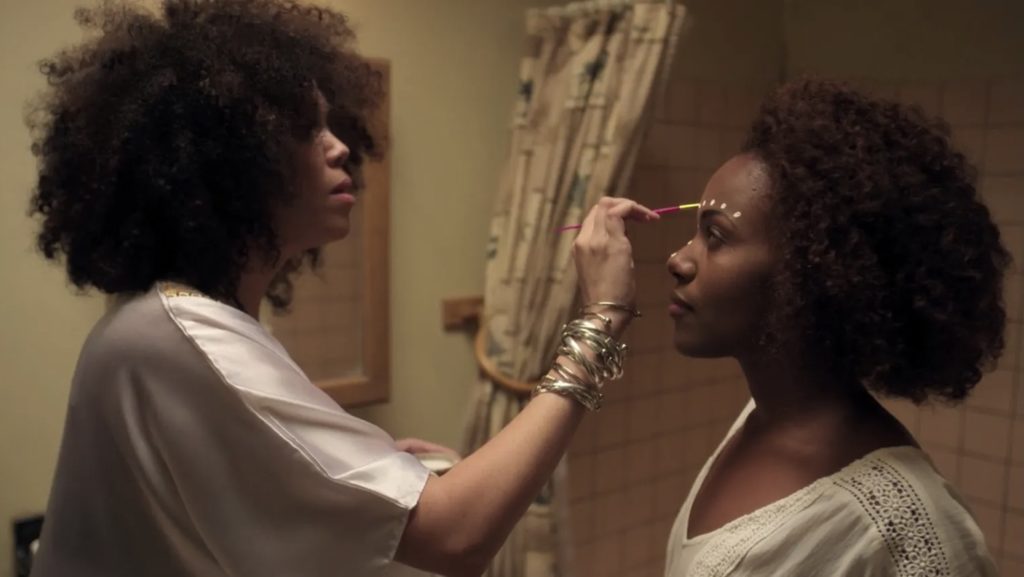
Via: Netflix
The faith of the Yoruba people who believe that they are the originators of this earth is present all over the world. In countries like Spain, Cuba, and Brazil, Yoruba culture is present in their fashion and religions, which even have similar gods and goddesses.
Santeria, an Afro-Caribbean religion, for example, has elements of Yoruba culture in its fashion and rites of passage. Take the “iyabó”, a newly initiated member of the religion who dedicates a year of his or her life to the Orishas, maintaining a vow of purity and rejuvenation. “Siempre Bruja”, a Spanish Netflix television series manages to highlight this indigenous practice of ceremonial white attires and offers minor Yoruba-speaking characters. The “Charmed” reboot also dances around the subject of Yoruba spells and magick without ever diving into Yoruba accuracies, displaying the tribe as occultist centered, which is far from the truth. “The Originals”, a popular sequel to “The Vampire Diaries” also centers a Yoruba character “Papa Tunde” solely around magick and spells.
There is a lot more to the tribe and ancient religion of the Yoruba people, and a growing aesthetic on our television screens is shying away from the heart and soul of the culture itself. It is important to note that there are an estimated 35 million Yorubas in Africa alone, and they would want more for their tribe without only being served in the media in regards to witchcraft and occult practices.
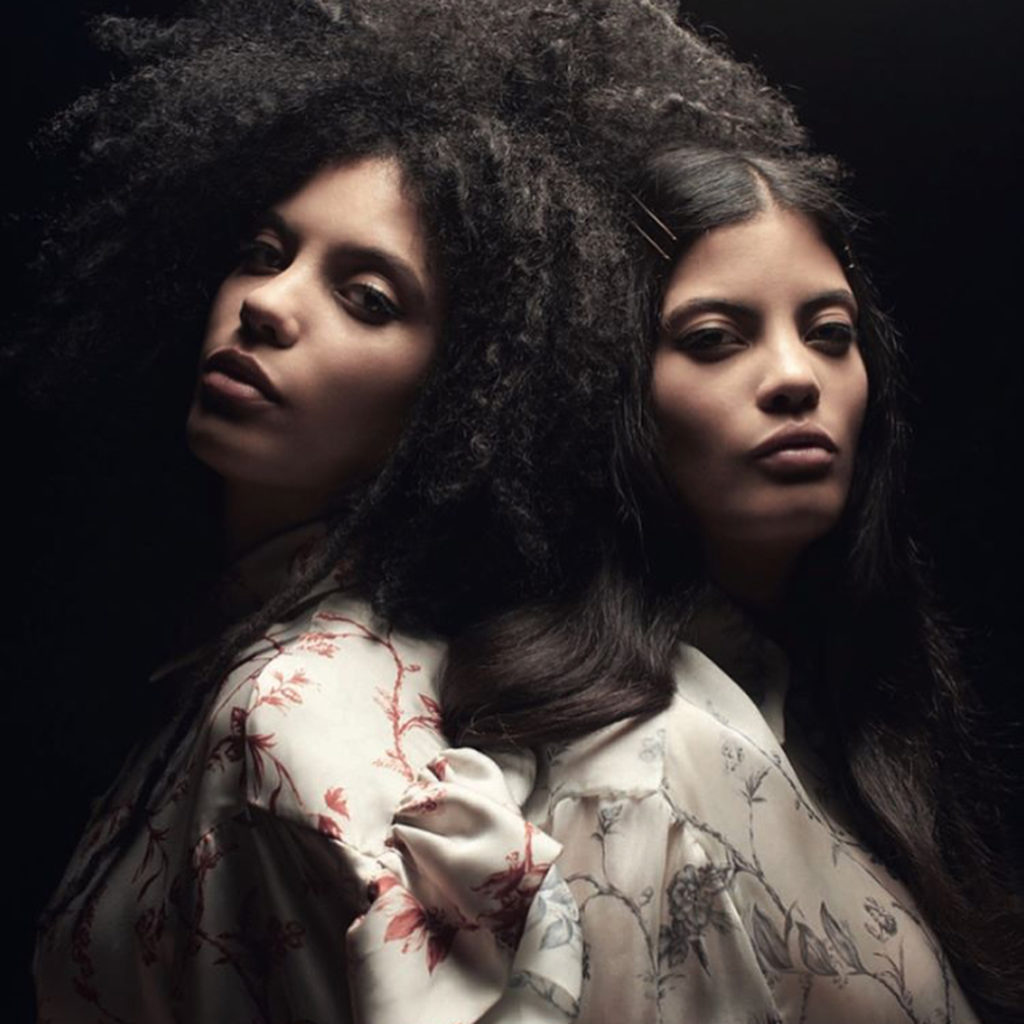
Via: Instagram – Ibeyi
Thankfully, with stars like Beyoncé showcasing the tribe gloriously, there seems to be hope. The Grammy Award-winning music legend Angelique Kidjo has been singing in Yoruba for decades, and the blessing that was Fela Kuti introduced a style of music and fashion to a lot of foreign listeners and watchers. Today, the Afro-Cuban singer “Ibeyi” sing proudly in the Yoruba language, blending it with several other languages the multi-racial duo are privy to.
Finally, as the music genre Afrobeats continues to penetrate the international market, Yoruba culture continues to grow in western entertainment today, but many people wonder at what cost.
Contribution by Demilade Phillips.
Check out the GUAP Arts & Culture section, to discover new art, film, and creative individuals.

